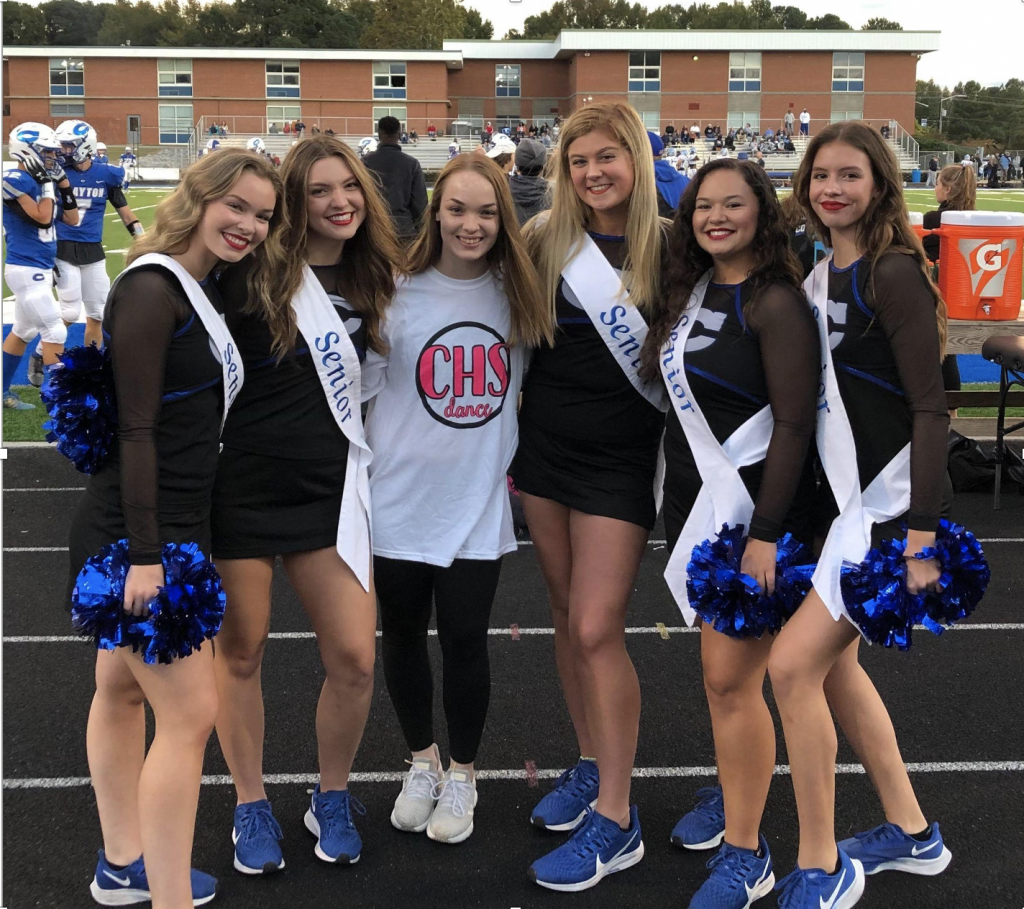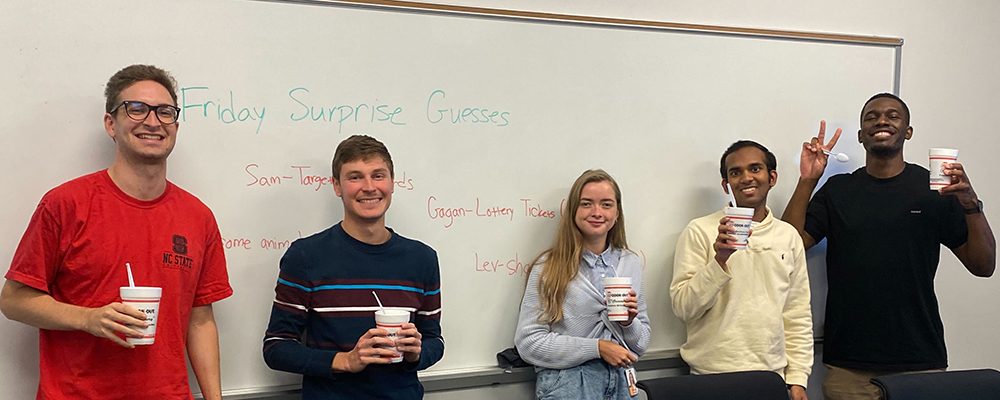IAA Student and head coach of Clayton High School Dance Team asked her members what they know about Data Analytics.
Are high school students aware of a career in Data Analytics, and if not, how could this affect the number of students going into their undergraduate career pursuing a path toward Data Analytics?
While IAA students have very strong technical skills and backgrounds, we are also creative individuals who have non-technical backgrounds and hobbies. I am a current MSA student and also the head coach for Clayton High School Dance Team. I grew up dancing competitively, and when in high school, I wanted to contribute to school spirit through my passion for dance. Being that Clayton High School was one of the only high schools in the county that did not have a dance team, I proposed the idea of starting a dance team to the principal. Five years later, I am the head coach for the same dance team I started, and was a member of, during my senior year of high school.

Speaking of five years ago, when I was a high school student, I had never heard of data analytics. The only careers I was made aware of in the field of mathematics were a statistician or teacher. It was not until my sophomore year of college when I realized that I excelled in numbers and wanted to pursue a career in mathematics and statistics. Luckily, I came upon an article on data science when I searched “Careers in mathematics.” This led me to my idea of asking my current members of the dance team what they knew about data analytics. I sent out a Google form to the members with these questions:
- Have you been told about career options in Data Analytics or Data Science during high school? (yes/no)
- In one sentence, what do you think a Data Analyst does?
What I was hoping to find was that the data analyst career option had at least been introduced to them, now that the field of analytics is rapidly growing. However, all but one member answered ‘no’ to question #1. They have NOT been told about career options in Data Analytics or Data Science during their time at CHS. This shows that data analytics has not been widely advertised in their high school.
Is this affecting the number of data scientists and analysts in the work field?
If individuals are not finding out about this career option until college or after college, how likely are they to go back and study something else to pursue a career in this field?
Being a former dancer, now coach, and also an MSA student, I find it fascinating when analytics are used in nontechnical fields such as sports or art. Because I am an MSA student, I know some about how analytics are used in nontechnical fields (there is still much to learn!). However, I was interested in how my students think analytics are used in nontechnical fields. So I asked my dance members to look up what “Data Analytics” is to get a general understanding, and I asked them how Data Analytics could be used in the dance industry (high school dance teams, professional dance, etc)?
Some interesting answers included the following:
- “I think it can be used in the dance world for performances, finances, data of the games the dancers are cheering at, and big dance companies trying to find their target audience.”
- “I think to maybe see your status or your standing in your profession and how it can affect your future.”
While most of the team members have not been introduced to analytics during their high school years, they were able to grasp the big idea of analytics. To hear how analytics can be used in nontechnical fields such as dance from individuals who have danced their whole life and are passionate about it was very interesting. Many of the responses talked about how analytics could be used in dance for financial and ranking purposes, which is many times how we see analytics used in other sports. After reading through these responses, I am inspired to spread knowledge about analytics to younger individuals, as well as support analytics in nontechnical fields, and even try it out for myself. Could analytics be more widely used in the dance industry? How would this be helpful?
I would like to see an increase in discussions about analytics and other careers in mathematics for high school students. The earlier people find out about the career and are intrigued by it, the more likely they will start the path to analytics sooner.
Columnist: Madison Marbrey
